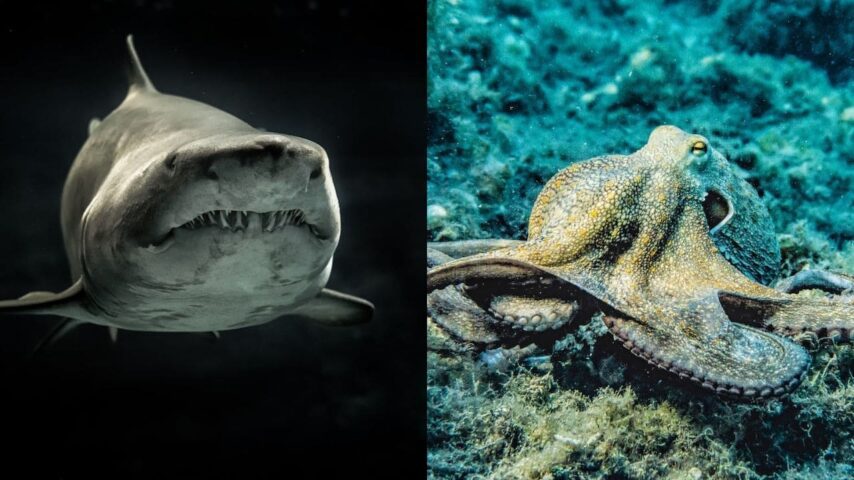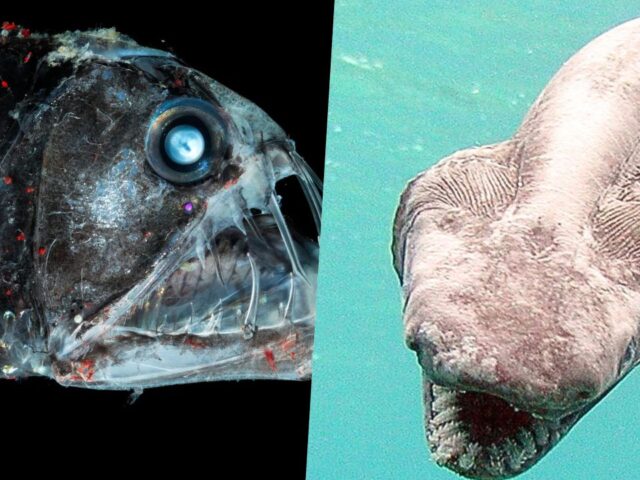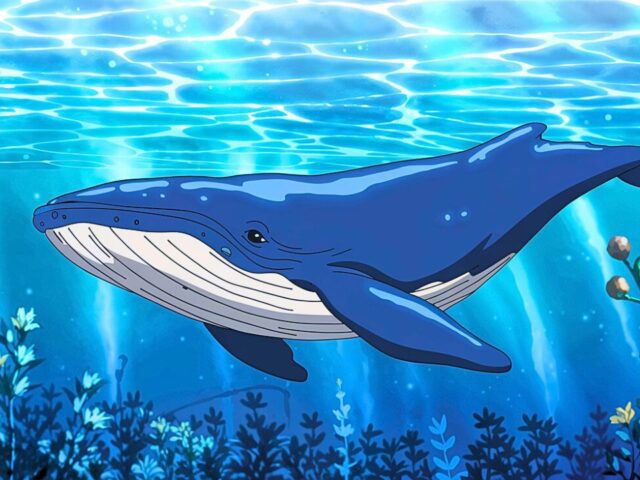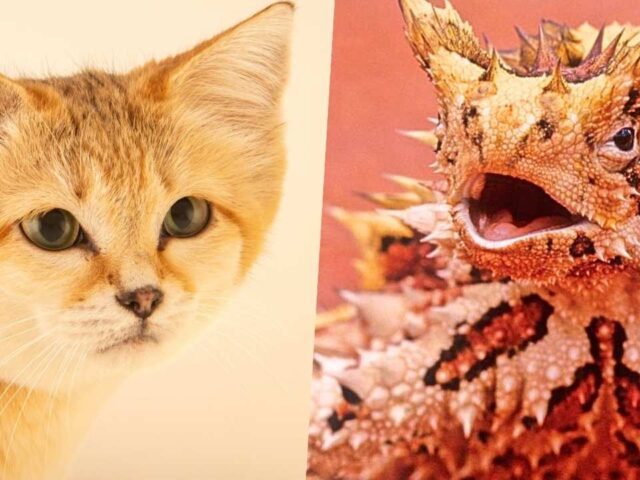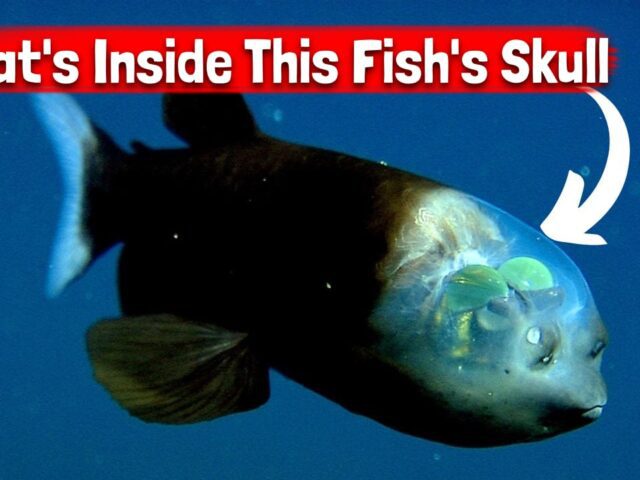“Do Sharks Eat Octopus?” is a question that often sparks curiosity among those fascinated by the marine world. It’s a query that bridges the gap between the fierce and formidable shark and the intelligent and elusive octopus. To answer this question succinctly, yes, sharks do eat octopuses. However, the relationship between these two intriguing marine creatures is far from simple.
It’s a complex interplay influenced by various factors such as the species of the shark, the type of octopus, and the availability of prey in their shared habitat.
Sharks, with their streamlined bodies and razor-sharp teeth, are the epitome of marine predators. They command respect and, at times, fear, as they navigate the ocean’s vast expanses.
On the other hand, octopuses, with their soft bodies, intelligent eyes, and eight flexible arms, are equally intriguing. They are renowned for their intelligence, adaptability, and remarkable ability to change color and texture to blend seamlessly into their surroundings.
In the following sections, we’ll delve deeper into this intriguing topic, exploring the dietary habits of sharks, the types of octopuses they eat, and the fascinating dynamics of the predator-prey relationship in the marine world.
Table of Contents
- 1. Sharks and Their Diet
- 2. Do Sharks Eat Octopus?
- 2.1 Octopuses as a Part of the Marine Food Chain
- 2.2 Why Octopuses Can Become Prey for Sharks
- 2.3 Specific Types of Octopuses That Sharks Eat
- 3. Sharks Known to Eat Octopuses
- 3.1 List of Shark Species That Are Known to Eat Octopuses
- 3.2 Why These Specific Sharks Eat Octopuses
- 4. Octopuses That Avoid Predation
- 5. The Predator-Prey Relationship Between Sharks and Octopuses
- 5.1 Predator-Prey Relationship in the Marine Ecosystem
- 5.2 Specific Examples of Sharks Eating Octopuses
- 5.3 Instances Where Octopuses Prey on Small Sharks
- 6. The Role of Sharks and Octopuses in the Marine Ecosystem
- 6.1 Importance of Sharks and Octopuses in Maintaining a Healthy Marine Ecosystem
- 6.2 Impact of the Predator-Prey Relationship Between Sharks and Octopuses on the Marine Ecosystem
- 7. Conclusion
- 8. FAQs on Do Sharks Eat Octopus
Sharks and Their Diet
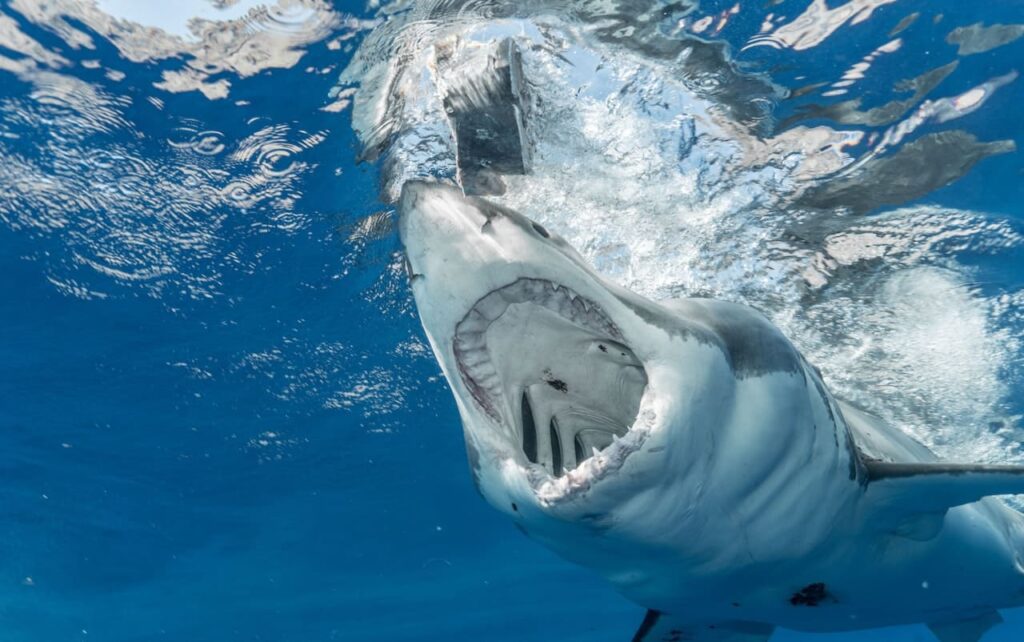
General Diet of Sharks
Sharks are known for their voracious appetites and diverse diets. They are carnivorous creatures, feasting on a wide array of marine life.
Their menu isn’t limited to just fish; it includes everything from small crustaceans and mollusks to larger marine mammals like seals and dolphins.
Some sharks even enjoy a meal of seabirds when the opportunity arises. Interestingly, certain species of sharks have been known to consume non-living things that find their way into the ocean, such as tires and license plates, showcasing their indiscriminate eating habits.
Predatory Nature of Sharks
The predatory nature of sharks is a key aspect of their survival strategy. Equipped with powerful jaws, sharp teeth, and a keen sense of smell, sharks are formidable hunters.
Their streamlined bodies allow for swift movement, and their ability to sense electrical fields helps them locate prey, even when hidden. Sharks are opportunistic predators, meaning they’ll often go for the easiest catch.
However, when the situation calls for it, they can also display strategic hunting behaviors, working alone or in groups to secure a meal.
Factors Influencing a Shark’s Diet
The diet of a shark is influenced by several factors:
- Species: Different species of sharks have different dietary preferences. For instance, the great white shark is known for its taste for seals and sea lions, while the tiger shark has a more varied diet, consuming everything from fish and seals to birds and smaller sharks.
- Location: The geographical location and habitat of a shark also play a significant role in determining its diet. Sharks living in coral reefs may have a different diet from those dwelling in the open ocean or coastal areas.
- Availability of Prey: The availability of prey in a shark’s habitat is a crucial factor. Sharks, being opportunistic feeders, will consume what’s readily available and easy to catch.
In the context of our main question, “Do sharks eat octopuses?”, these factors come into play. While not all sharks eat octopuses, those that do are usually influenced by their species, the presence of octopuses in their habitat, and the ease of catching these soft-bodied creatures.
Do Sharks Eat Octopus?
The answer to the question “Do Sharks Eat Octopus” is Yes. Sharks do eat octopus. The relationship between sharks and octopuses is a part of the complex marine food chain, with sharks being the predators and octopuses often falling prey.
Octopuses as a Part of the Marine Food Chain
Octopuses, despite their intelligence and adaptability, are a part of the marine food chain and serve as a food source for various marine creatures. They play a crucial role in maintaining the balance of the ecosystem.
Octopuses are known to feed on small crustaceans, mollusks, and fish, while they themselves can become a meal for larger predators, including sharks.
Why Octopuses Can Become Prey for Sharks
Octopuses can become prey for sharks due to several reasons. Firstly, they share the same habitats as many shark species, making them readily available as a potential food source.
Secondly, despite their ability to camouflage and their defensive ink-squirting mechanism, octopuses can still be detected and caught by sharks, thanks to the sharks’ keen senses.
Lastly, octopuses, particularly the common octopus, are large enough to provide a substantial meal for many shark species.
Specific Types of Octopuses That Sharks Eat
While sharks may eat any type of octopus they encounter, the common octopus often falls victim to these marine predators. Common octopuses are found in various habitats, including coral reefs and oceanic waters, making them easily accessible to sharks.
Their size also makes them a worthwhile catch for a hungry shark. However, it’s important to note that the specific type of octopus a shark eats can depend on the shark’s species and the availability of different octopus species in its habitat.
Several species, including the shortfin mako, great white, hammerhead, thresher, tiger, and bull sharks, are known to include octopuses in their diet.
Sharks Known to Eat Octopuses
List of Shark Species That Are Known to Eat Octopuses
Several shark species have been documented to include octopuses in their diet. These include:
- Shortfin Mako Shark: Known for its speed and agility, the shortfin mako shark has a varied diet that includes octopuses, squids, and other cephalopods, along with fish and other marine animals.
- Great White Shark: The infamous great white shark, renowned for its size and predatory behavior, feeds on a wide variety of prey, including octopuses, seals, sea lions, dolphins, and other marine mammals.
- Hammerhead Shark: With its distinctive hammer-shaped head, the hammerhead shark has a broad diet that includes octopuses, fish, and other marine animals.
- Thresher Shark: Known for their long, whip-like tails used to stun prey, thresher sharks feed on a variety of marine life, including octopuses, squids, and other cephalopods.
- Tiger Shark: Tiger sharks are known for their diverse diet, which includes octopuses among other marine creatures.
- Bull Shark: Bull sharks are also known to consume octopuses, thanks to their diverse diet and adaptability to different environments.
Why These Specific Sharks Eat Octopuses
These specific sharks eat octopus due to a combination of factors. Firstly, these sharks are opportunistic feeders with a broad diet, allowing them to take advantage of a wide range of available food sources, including octopuses.
Secondly, their size and hunting capabilities enable them to tackle prey like octopuses, which can be challenging for smaller or less aggressive shark species.
Lastly, these sharks often inhabit regions where octopuses are abundant, increasing the likelihood of octopuses becoming a part of their diet.
Octopuses That Avoid Predation
Why Some Octopuses Are Not Typically Eaten by Sharks
While many octopuses fall prey to sharks, some manage to avoid becoming a shark’s meal. A prime example is the blue-ringed octopus. This small-sized octopus is not typically eaten by sharks, primarily due to its size and potent venom.
Its small size makes it less noticeable and less appealing to large predators like sharks. Moreover, the blue-ringed octopus carries a venom that is deadly to predators, serving as a powerful deterrent.
Defensive Mechanisms of Octopuses
Octopuses are not defenceless creatures. They possess a range of defensive mechanisms that help them evade predators, including sharks. Here are some of their key defenses:
- Camouflage: Octopuses are masters of disguise. They can change the color and texture of their skin to blend in with their surroundings, making them hard to spot.
- Ink-Squirting: When threatened, octopuses can release a cloud of dark ink. This ink not only obscures the vision of the predator but also interferes with their sense of smell, allowing the octopus to make a quick escape.
- Autotomy: Some octopuses can lose an arm to escape a predator’s grasp, a process known as autotomy. The lost arm can later regrow.
- Venom: Some octopuses, like the blue-ringed octopus, carry venom. This venom can be used defensively to deter predators.
These defensive mechanisms play a crucial role in the survival of octopuses in the face of predators like sharks.
The Predator-Prey Relationship Between Sharks and Octopuses
Predator-Prey Relationship in the Marine Ecosystem
The predator-prey relationship is a fundamental aspect of the marine ecosystem, contributing to its balance and diversity. Predators, like sharks, help control the population of their prey, preventing overpopulation and ensuring the health of the ecosystem.
Prey, like octopuses, provide essential nutrients for their predators, contributing to their survival and reproduction. This dynamic relationship is a key driver of evolution, leading to the development of various adaptations for both predation and defense.
Specific Examples of Sharks Eating Octopuses
Sharks eating octopuses is a common occurrence in the marine world. For instance, tiger sharks, known for their diverse diet, have been observed consuming octopuses.
Similarly, great white sharks, one of the ocean’s top predators, have been known to include octopuses in their diet.
These instances highlight the role of octopuses as a food source for sharks and the broader predator-prey dynamics within the marine ecosystem.
Instances Where Octopuses Prey on Small Sharks
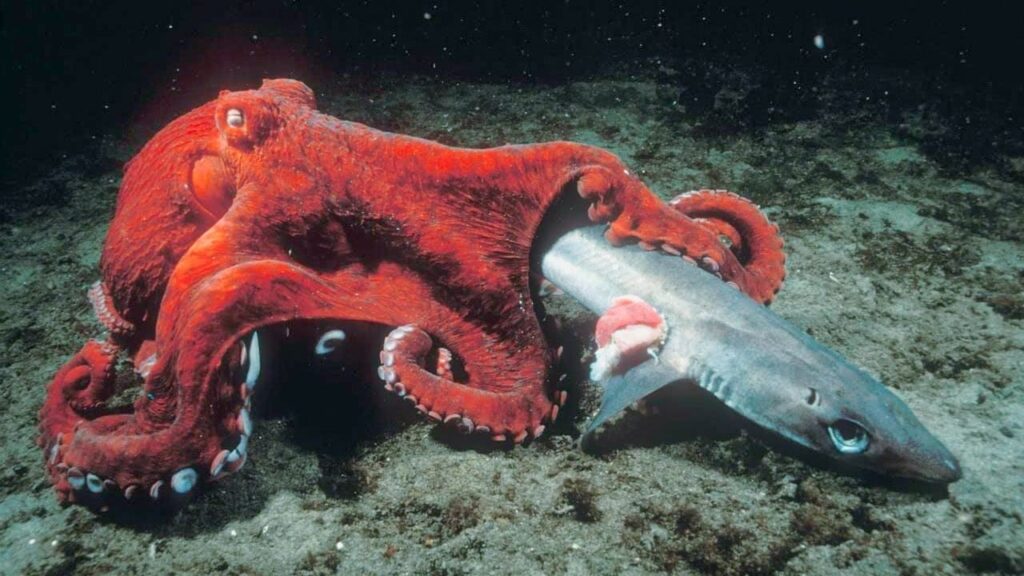
Interestingly, the predator-prey relationship between sharks and octopuses is not one-sided. There are instances where octopuses, particularly the larger species like the giant Pacific octopus, have been known to prey on small sharks.
These octopuses use their eight arms to ensnare their prey and their beak-like mouths to deliver a deadly bite.
This fascinating role reversal showcases the adaptability and predatory capabilities of octopuses and adds another layer of complexity to the relationship between sharks and octopuses.
The Role of Sharks and Octopuses in the Marine Ecosystem
Importance of Sharks and Octopuses in Maintaining a Healthy Marine Ecosystem
Both sharks and octopuses play vital roles in maintaining a healthy marine ecosystem. Sharks, as apex predators, help regulate the populations of their prey, contributing to the balance of the ecosystem.
By consuming sick or weak individuals, they also help to prevent the spread of disease and maintain the genetic health of prey populations.
Octopuses, on the other hand, are both predators and prey within the food chain. As predators, they help control populations of crustaceans, mollusks, and fish. As prey, they provide a valuable food source for larger predators, including sharks.
Impact of the Predator-Prey Relationship Between Sharks and Octopuses on the Marine Ecosystem
The predator-prey relationship between sharks and octopuses has significant implications for the marine ecosystem. This relationship contributes to the dynamic balance of the food chain.
When sharks consume octopuses, they help regulate the octopus population, preventing overpopulation that could lead to the overconsumption of other marine species.
Conversely, when octopuses prey on small sharks or successfully evade larger sharks, they contribute to the survival and diversity of their own species. They also influence the behavior and distribution of their shark predators.
In essence, the interaction between sharks and octopuses is a testament to the intricate and interconnected nature of life in the ocean. It’s a reminder of the delicate balance that exists within the marine ecosystem and the importance of each creature’s role within it.
Conclusion
In this exploration of the intriguing question, “Do Sharks Eat Octopus?”, we’ve delved into the fascinating world of these two marine creatures.
We’ve learned that sharks, with their diverse diets and predatory nature, do indeed eat octopuses. Even though the common octopus often falls prey to sharks, while some octopuses, like the blue-ringed octopus, manage to evade predation due to their size and potent venom.
We’ve also examined the list of shark species known to eat octopuses, including the shortfin mako, great white, hammerhead, thresher, tiger, and bull sharks.
Furthermore, we’ve explored the intriguing instances where the tables are turned, and octopuses become the predators, preying on small sharks.
Finally, we’ve considered the broader implications of the predator-prey relationship between sharks and octopuses for the marine ecosystem, highlighting the crucial roles these creatures play in maintaining its health and balance.
The relationship between sharks and octopuses is a testament to the intricate and dynamic nature of marine ecosystems. It’s a fascinating dance of survival, where each creature plays a vital role in maintaining the delicate balance of life under the sea.
As we continue to explore and understand these complex relationships, we gain a deeper appreciation for the marvels of the marine world and the importance of preserving its health and diversity for future generations.
FAQs on Do Sharks Eat Octopus
No, not all species of sharks eat octopuses. The diet of a shark depends on its species, size, and the availability of prey in its habitat. However, several species, including the shortfin mako, great white, hammerhead, thresher, tiger, and bull sharks, have been known to eat octopuses.
A: Sharks eat octopuses because they are opportunistic feeders with a broad diet. Octopuses are a part of the marine food chain and are readily available in many of the same habitats as sharks. They provide a substantial meal, especially the common octopus, which is large enough to satisfy a shark’s appetite.
Yes, some octopuses, like the blue-ringed octopus, are not typically eaten by sharks. This is primarily due to their small size and potent venom, which serves as a deterrent to predators. Octopuses also have various defensive mechanisms, such as camouflage and ink-squirting, which help them evade predators.
Yes, there are instances where octopuses, particularly larger species like the giant Pacific octopus, have been known to prey on small sharks. They use their eight arms to ensnare their prey and their beak-like mouths to deliver a deadly bite.
The predator-prey relationship between sharks and octopuses contributes to the balance and diversity of the marine ecosystem. Sharks help regulate the population of octopuses, preventing overpopulation. Conversely, octopuses provide a valuable food source for sharks and influence their behavior and distribution. This dynamic interaction is a key driver of evolution and adaptation in the marine world.
Sources:
Read More Interesting Articles:

